Manicburg | Interview | Album Premiere
Born from the creative minds of NYC’s Ray Lustig and Italy’s Luigi Porto, Manicburg emerges with their self-titled debut album.
Slated for release on October 25th, 2024, via Respirano Records, this album presents a deeply personal fusion of post-punk, dream pop, and art rock. Lustig’s surreal compositional flair pairs seamlessly with Porto’s mesmerizing soundscapes, crafting intricately layered songs that pulse with depth and atmospheric richness.
Manicburg’s live shows embody the drama of ancient rites, amplifying the album’s themes of connection and exploration. The album will be available on LP, CD, and all streaming platforms, so don’t miss out!
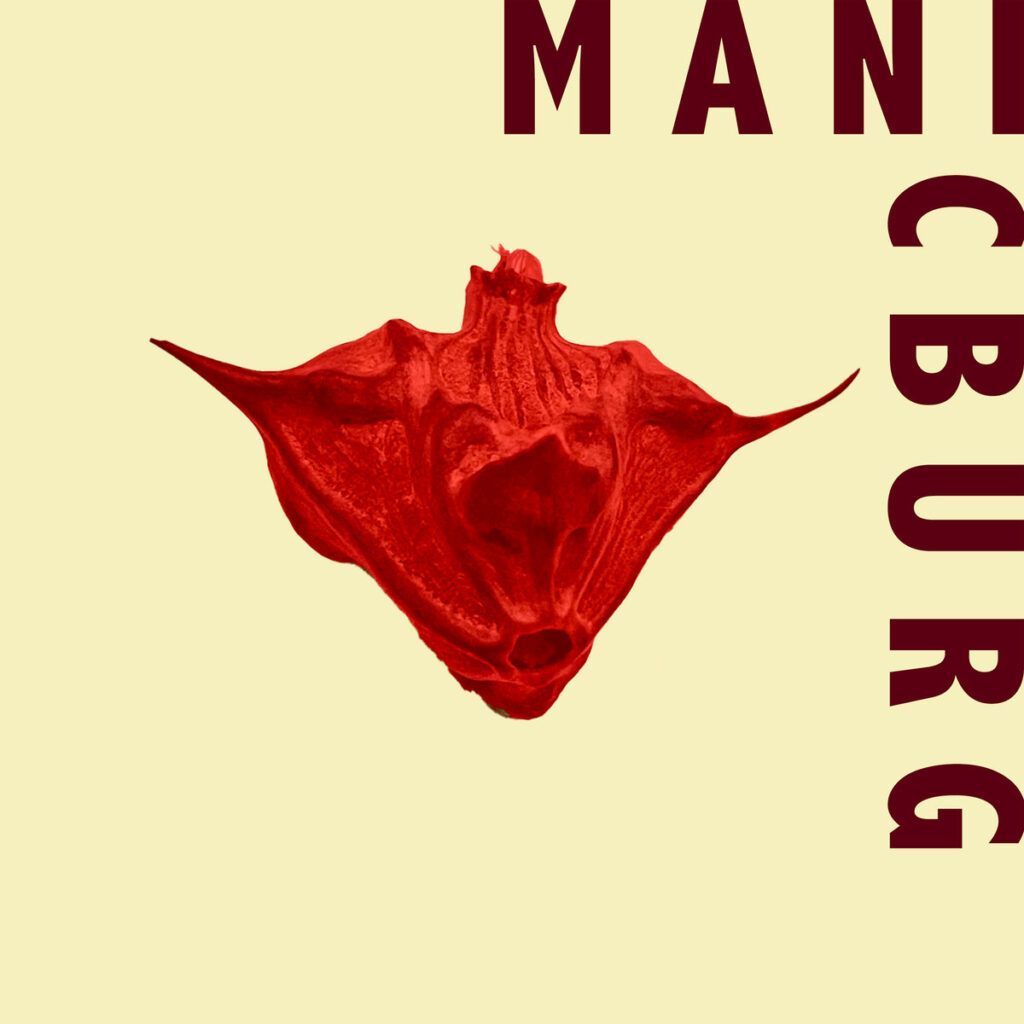
“Manicburg is a live band and couldn’t exist without its live shows”
I would love to hear how you first got together.
Luigi Porto: Around age 34-35, I enrolled in composition and orchestration at the Juilliard Evening Division, but because when asked “who did you study with,” I answered “myself,” I was automatically thrown into the entry-level courses. Ray was the teacher, and he kicked me out of his class after a semester, but at some point, he wanted to meet and invited me to his Studio Nights. We were living in the same neighborhood of Washington Heights. Music happens for geographical reasons. There, I heard him performing the early piano-vocal versions of ‘Here’s Your Man’ and ‘Silken Pavilion.’ We started meeting daily and working on his songs and mine, with occasional contributions from other musician friends. Manicburg was a big collaborative project in Ray’s head, with people from all over the world, and a band in my head, limited to the rug we were stepping on. We ended up recording an album with several collaborations from all over the world, but a steady band in NYC, all meeting on the same rug.
Ray Lustig: Haha, I didn’t kick him out of the class; I promoted him as quickly as possible to the next level class. He was way too interesting and ambitious for the class he got stuck in, or any classroom, probably. But I continued to follow his stuff because he seemed a cool, unusual composer with striking, strong ideas—mysterious, hard to understand, in a good way. We were both musicians who had very wide-ranging interests. I was always heavily into symphonic music and went all the way to the doctorate at Juilliard to study, but both my younger brothers had been in punk rock bands, and my high school years downtown in Greenwich Village were formative. I craved hardcore training in the old tradition, but at Juilliard, I was definitely one of the more “downtown”-centric composers. And Luigi was similar, coming from very downtown but also craving rigor and focused study. We both want to make music that comes from a deep place, channeling deep traditions, growing from and recombining them, like a lot of the truly innovative music we admire the most. When a few years later I started getting into songwriting, he and I reconnected, a lot of new ideas hatched, and that just grew and grew, with more collaborators and eventually the full live band.
Is there a concept behind your project?
Luigi: These are questions that we may probably answer in a few years. It usually occurs to me that I understand the true meaning of a work only after I gain a detached view of the big picture. Some lyrics are more straightforward; others are definitely more cryptic and open to interpretations. For example, “One Man Cult,” a song by Ray that is on the additional 7” in the deluxe edition of the album, has always been in my mind a perfect depiction of a specific person I know, although it doesn’t speak about that person (that Ray, by the way, doesn’t even know). ‘Rodents’ is a vomited, coarse, frantic chronicle of an eviction siege in NYC.
Ray: Yes, I remember right after your dramatic NYC eviction nightmare episode, we wanted to write a song about it. We worked on it and put a lot of cool material down, kept trying, but it didn’t end up getting finished. Something just wasn’t coming together, so we sat on it. And then later, you wrote ‘Rodents’ just straight from emotion, not a plan, and it was a far better expression of the crazy stress and angst of that time than we ever could have made by trying so directly. And there was the eviction song we’d wanted.
So I’m totally with Luigi on saying that we consciously wanted to avoid having any agendas at the outset. We wanted the raw ideas and the decisions we make about them to lead the way, to tell us what they’re trying to tell us about what’s filtering through our unconscious. And with our debut album finally done and out, I feel like we’re just at the start of seeing what it might be about.
Maybe that’s why we settled on the name Manicburg. It sounds like some imaginary city being built, as real cities are built, through a mix of some initial ideas, convergence, chance factors, convenience of the moment, ongoing repairs, problem-solving, disasters, responses, rebuilding, reconsideration, adaptation—piecemeal and evolving over time rather than by intentional design. Eventually, the city starts to show its character, the character that had been quietly shaping it all along. No one decided on that character; it just emerged as a sum total.
And now we call our studio Manicburg-on-Hudson because it overlooks the Hudson River in the far-northern Manhattan neighborhood of Washington Heights, a neighborhood filled with lots of artists. The studio is a regular meetup and house concert space for us and our local musician and artist friends.
Can you share the inspirations behind your latest album?
Luigi: I personally took a big step toward the playable song form after my last solo works. Manicburg is a live band and couldn’t exist without its live shows. Even the songs that were developed individually reached their final form in the rehearsal space, and they keep evolving in their live version even after the recordings. We wanted to shape a recognizable sound and apply it to our compositions, making sure the songs would work both on a big electrified stage and in a more intimate, “unplugged” setting. We are obviously influenced by the late 60s, post-punk, and alternative rock of the 1990s. What we were after with the project was to resist any temptation to over-arrange and deliver a core sound that would stem from a basic blend of organ, fuzz guitars, acoustic guitars, and occasionally the warmth of the accordion—an instrument whose psychedelic potential Ray made me notice when he first proposed recording over my song ‘Sketchy Building.’
Ray: From what I am starting to see, the album seems to have a central driving theme of one’s place in the world—of finding, trying to make, or losing one’s place in the world. As different as the songs are sonically and thematically, every song seems to reflect these existential questions. There is a lot about dysfunctionality, trouble adapting, and self-sabotage.
Your music fuses diverse sonic worlds, coming from different backgrounds in NYC and Italy. How did that different background shape the sound of ‘Manicburg’?
Luigi: Every band made up of more than one individual fuses diverse sonic worlds. Ray comes from the NYC contemporary art music scene, a world that I had a foot in for a while as a curious outsider, coming from a more underground and darker environment. We could say that the spark of the album probably started with “Silken Pavilion,” which is a great composition by Ray reminiscent of his musical theater experiences, that we turned into some overdriven garage psychedelia. The formula worked, and we naturally started developing the album.
Ray: Well, it sure made for some creative friction, and while that can seem agonizing at times, if you can harness it, it’s powerful. The give-and-take means you end up with something neither of us could ever come up with working alone, so we know we’re not repeating ourselves. It’s only through collaboration that you can start to see yourself. You’re forced to encounter what before you took for granted or didn’t even know. Your habits and rutted ways of thinking, seeing, and hearing start to come out, so you can question them and move beyond them.
And while Luigi and I are at the center of the writing, we have all these other great musicians around the world who we worked with on this album—our album credits are extensive, you’ll see—and their artistry also helped shape and deepen the album.
Both of you have extensive backgrounds in various musical realms. How did your past experiences influence the creative process for this debut album?
Luigi: My background is definitely European and pretty diverse itself. I’ve experimented in many directions in the past, from electronics to acoustic folk, and played with bands, and at some point, I got into orchestral writing and film soundtracks. Then I moved to NYC and began navigating the world of contemporary music, a flirtation that lasted a while, but eventually, I missed cranking an amp on stage. So after producing my 2021 solo album Tell Uric, I was naturally ready to enter a band dimension and blend creativities.
Ray: Before the pandemic, a collaborator friend, Matthew Doherty, and I wrote a big stage work, Semmelweis, kind of a choral opera, evening length, with a big cast and musicians, and when we were working to get it produced, we had to mount a showcase. It was out-of-pocket, so to save money, I jumped in as a performer myself. The only male role was the main character, and the one whose scenes were the most “song-like,” so I went for it. It’s not common in the classical music world for a composer to take the stage, especially as a singer, but I was like, if they do it in the American musical theater world, I’m just going to do it too. It will have to be good enough. And that really got me headed down the road of songwriting and performing my own music.
Then I met Luigi, who came to a similar place from the opposite direction, always a performer, always playing his own music, but then starting to create music for other people that he didn’t perform in, learning to be able to make something conceptual that he could hand off and entrust to other musicians. He and I went into the studio and started making this big project that started with us but then branched out to include all of these other musicians around the world.
And now with the live band, the influences expand much further with Costa Rican drummer Varo Barahona, native New York metal and jazz guitarist Rob Salmon, and Mexican indie bassist Daniel Espinoza. These musicians all bring so much to the table and keep the music growing, evolving, and deepening all the time.
As seasoned composers and performers, what new challenges did you face while creating this album?
Luigi: Don’t even get me started on this one. Creating, arranging, and mixing was the best part; we had a great time, but it’s a pain to release music nowadays, very taxing for artists when it comes to promoting it in a saturated environment. We chose not to go through the process of sending demos and instead released it directly under our own label, spending a significant amount of time in the production process rather than looking for an outlet. For me, the good novelty was, for once, not being the man behind the mixer. I have always produced everything myself from start to finish because I am a control freak and usually won’t settle for anything. Even when working for other bands, I would deliver complete songs that only needed a final mix. This time we had our engineer Maximilien Hein, who followed us through the whole process, including all of our quarrels. He is now a key figure at The Hit Factory, where we ended up mixing the album, and the album definitely has his mark on its sound.
Ray: For me, I had been so long in pursuit of new-classical composition, pen-and-paper composing, usually where you’re writing music for other people to play, experts at their instruments, and the norm leaned very heavily toward unplugged orchestral instruments. The priorities for that role are very different from what we’re doing now. Performing myself, all the technology involved, and the entire realm of recording, production, and audio were all pretty low-priority, unfortunately, for the kind of composer I’d been working as. But I was antsy to deepen and broaden my musicianship in these ways. And I know for Luigi, it was an effort for him to learn to work with someone behind in these crucial areas. This album has been a massive effort, so now I’m feeling pretty well caught up in those areas too.
With the album being released soon, what do you want listeners to take away from Manicburg?
Luigi: I would personally be honored if somebody just listens to the album, taking the right time to do that, and not using the songs as background for activities, which seems to be the main purpose of music nowadays and probably the reason behind the fact that albums often sound like a repetition of the same song over and over. I grew up in a time when we used to spend an afternoon in a record store to find the album we would buy with the money we had, go home, and have several listening sessions, getting familiar with the sound, the tracklist, and the lyrics—“living” with the songs. I understand this is not really happening anymore, but if even one person experiences Manicburg like that, I am happy.
Let’s end this interview with some of your favorite albums. Have you found something new lately that you would like to recommend to our readers?
Luigi: For me, the most truly innovative artist in the Western world nowadays is King Krule. He blends influences I am familiar with in an unfamiliar way, creating an uncanny mélange that is fascinating and truly fresh while being intense, especially in blending stuff from very different worlds, like his jazzy harmony and punk attitude. The last time the British blended apparently irreconcilable styles—like reggae, rap, and darkwave—it was when the Bristol scene happened. That is still, I think, the last big revolution in music. By revolution, I mean something that is a turning point, a tremendous elephant in the room that will influence art to come, both in its elevated forms and in popular idioms, creating a “before” and an “after.” Well, if somebody has ever taken a step forward from that innovation, that guy is King Krule.
As for my all-time favorite albums, mostly for affection reasons, I always mention ‘Insanus, Ultio, Proditio, Misericordiaque’ by Christian Death, ‘After the Gold Rush’ by Neil Young, and if you want classics, Joy Division’s ‘Unknown Pleasures,’ Dead Can Dance’s ‘Spleen and Ideal,’ and Bowie’s ‘Low.’ One album that almost nobody knows anymore but had a great influence on me was Village of Savoonga’s ‘Philipp Schatz.’
Ray: My center of gravity for “new” is not what a lot of people would call new. My “old” is before J.S. Bach, then Debussy and Stravinsky and friends made things shockingly “new” in the 20th century, followed by Terry Riley, La Monte Young, Steve Reich, and the “minimalists,” which brought a whole new sensibility. For me, the Beatles marked the beginning of the new “new.” But the newest I’m into, many already becoming “classics,” include Blonde Redhead’s album ‘Melody for Certain Damaged Lemons,’ Animal Collective’s ‘Feels,’ Tame Impala’s ‘Lonerism,’ Toth’s two albums ‘Practice Magic’ and ‘Seek Professional Help When Necessary,’ and ‘You and Me and Everything’; Alex Sopp’s ‘The Hem & The Haw’; Estonian composer Maarja Nuut’s ‘Muunduja’; Polish composer Czesław Śpiewa’s album with ‘Arte dei Suonatori’; and Crumb’s ‘Jinx’. I spend a lot of my listening hours on older music and traditional genres—from Mancini, Morricone, Mangione, and Chico Buarque, to Gotan Project’s early 2000s nuevo tango sound, trad bluegrass, and European folk music, as well as Regina Spektor’s trippy anti-folk. Sometimes I feel overwhelmed; there’s so much amazing new music coming out all the time, but there’s so much great old music that calls to me to listen more and deeper.
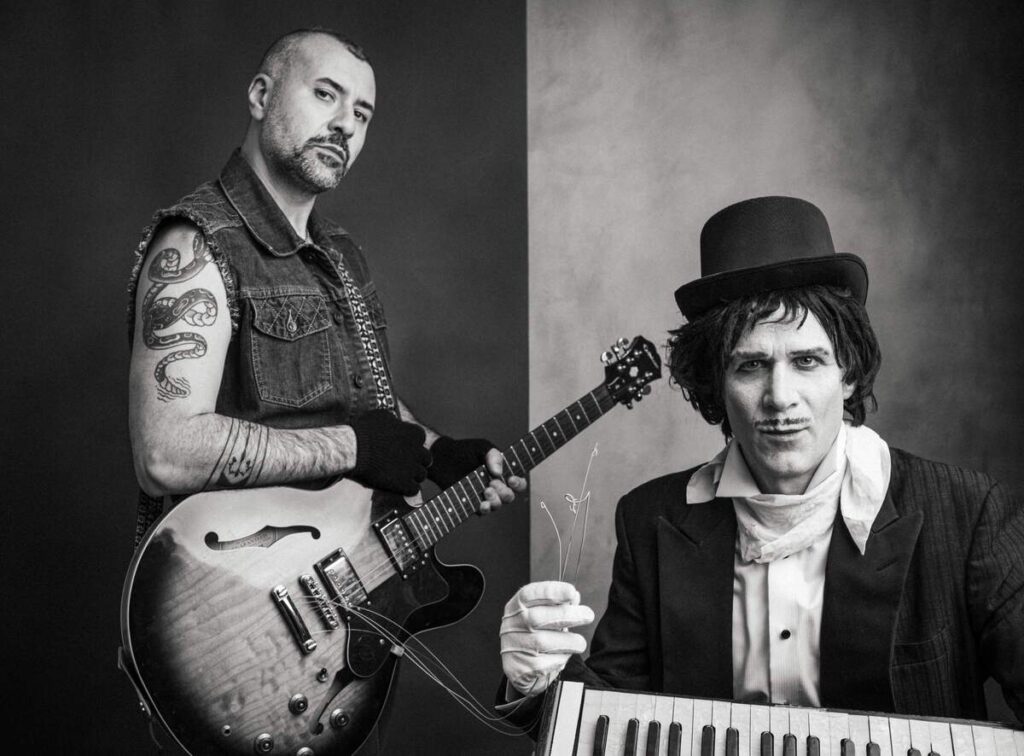
Thank you. The last word is yours.
Luigi: Just watch out for our forthcoming US and EU tours. And buy the album! Or pirate it on a cassette. We’re fine with that.
Ray: Come to our shows, meet us, and become a citizen of the town of Manicburg.
Klemen Breznikar
Manicburg Official Website / Facebook / Instagram / Bandcamp / YouTube
Respirano Records Official Website / Facebook / Instagram / Bandcamp

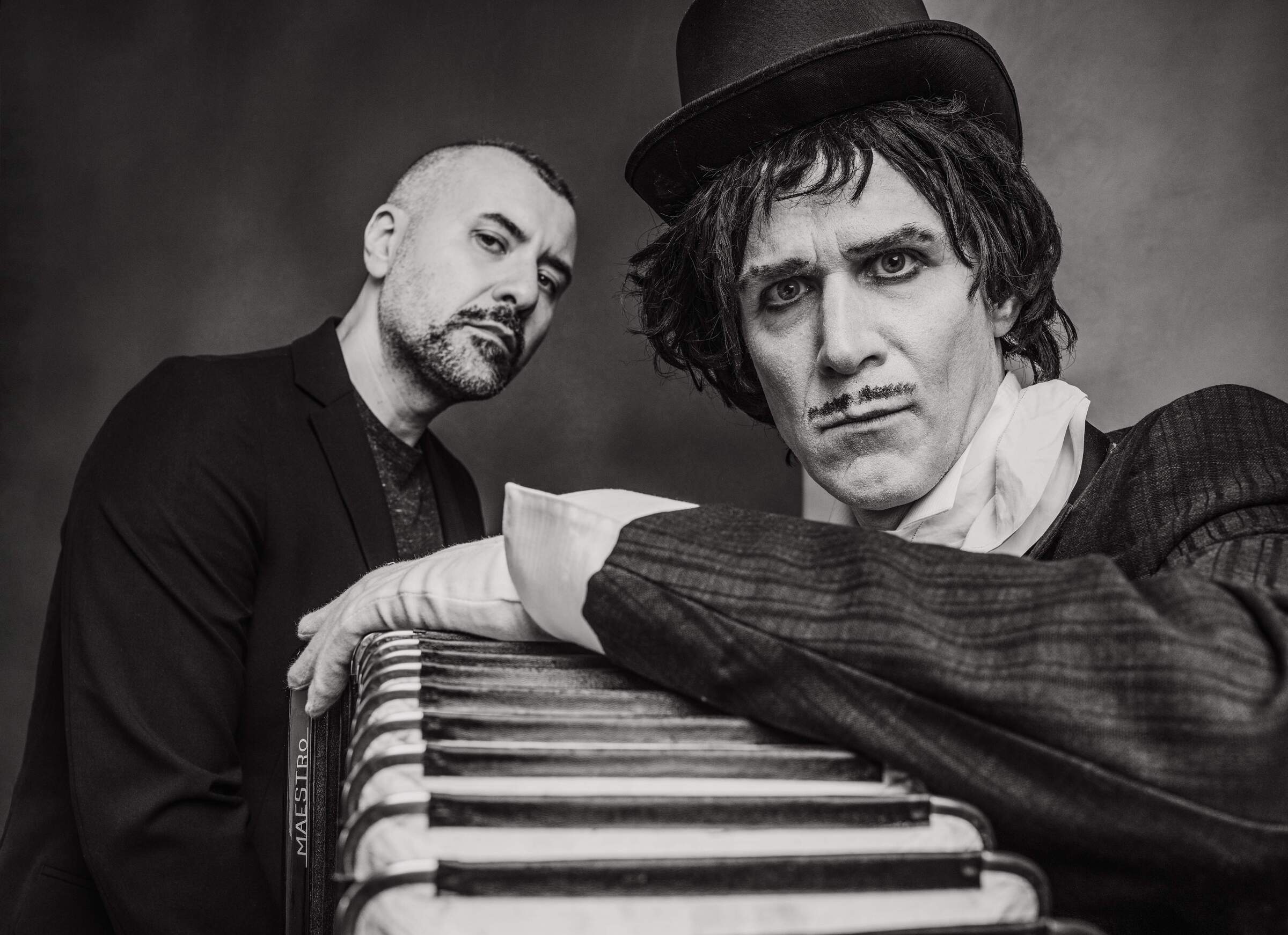
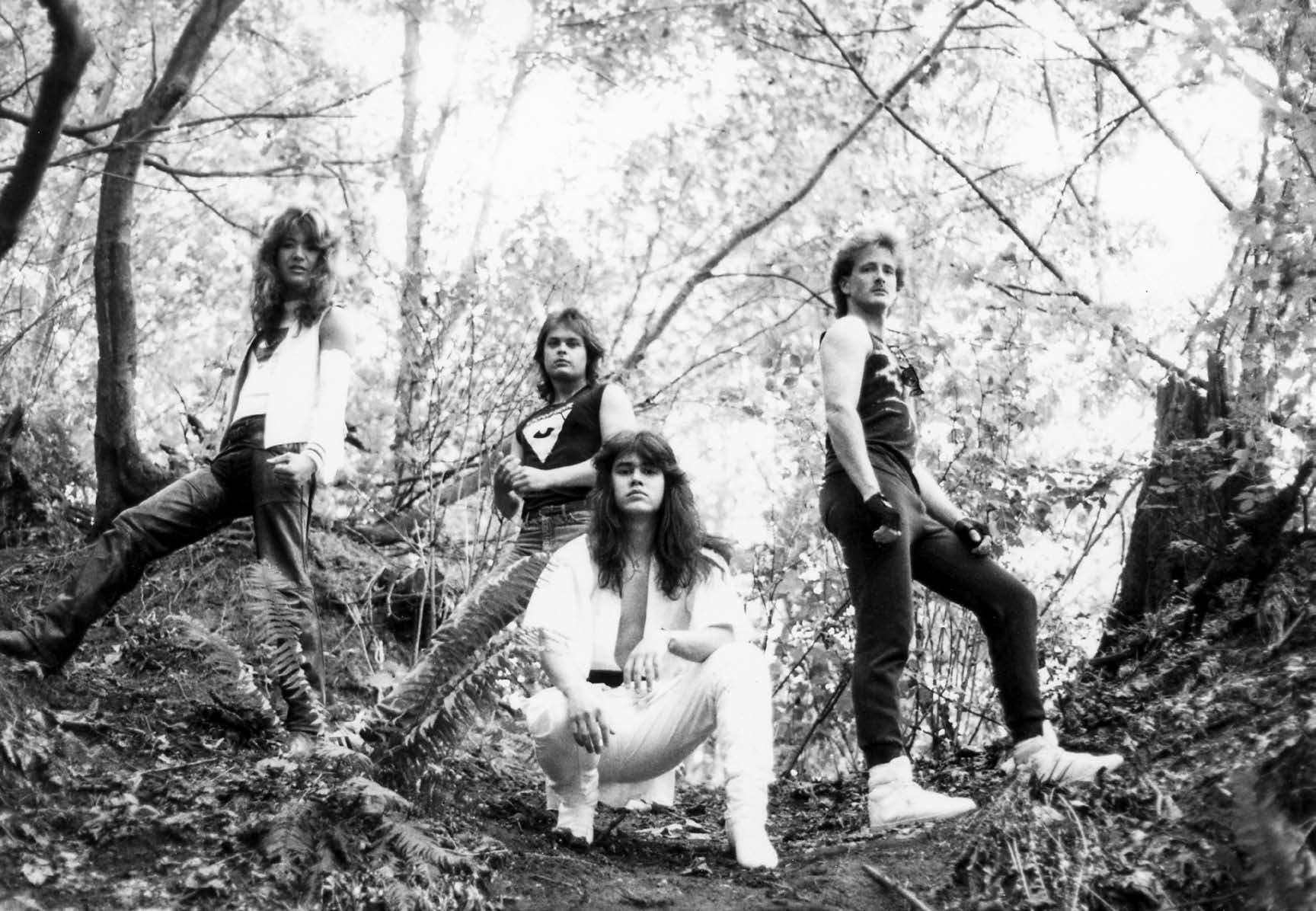
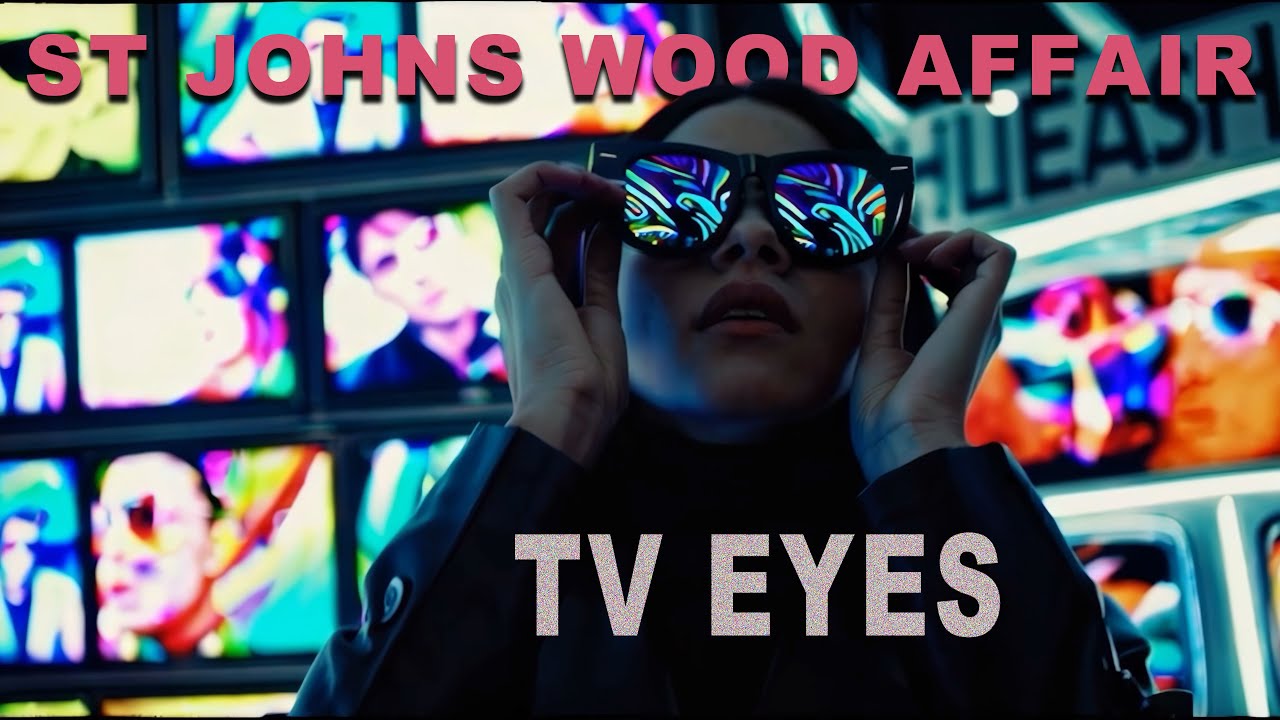

When I first heard Manicburg, I was transported to the time when I first heard Genesis and Radiohead. You can’t merely listen to one or two tracks of those artists and expect that represents who they are. Put on some headphones and listen. Ear candy at every turn.